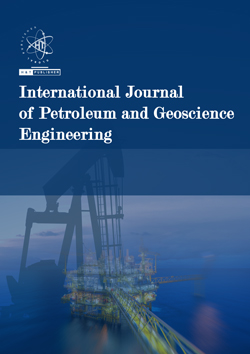


The possibility to economically produce gas from unconventional natural resources (shale gas) reservoirs has been made possible recently through horizontal well and hydraulic fracturing application. Hydraulic fracture or ‘fracking ‘is a technique that use in combination with horizontal drilling to stimulate or improve extracting natural gas from shale formation. However, this operation requires large volume of fluid to be pumped into the well at high pressure and flow rate in order to split the rock. This fluid is mainly water and mixed with sand and some chemical materials such as proppant. Injection large volume of fluid into subsurface is risky. However, this project focus on the effect of fracking operation on ground water and aquifer due to chemical additives and methane which is the main composition of shale gas. According to this report the gases and chemical additives may escape and flow into overlying ground water ‘aquifer’ in three possible pathways: 1) loss of wellbore integrity 2) disposal of flow back water 3) natural fracture network. This paper also looks at two case studies, North-East Pennsylvania, New York and Wyoming in the USA, which have the same geological shale formation. The study focuses on finding the potential impact of fracking technique that is used to extract natural shale gas on ground drinking water systems.